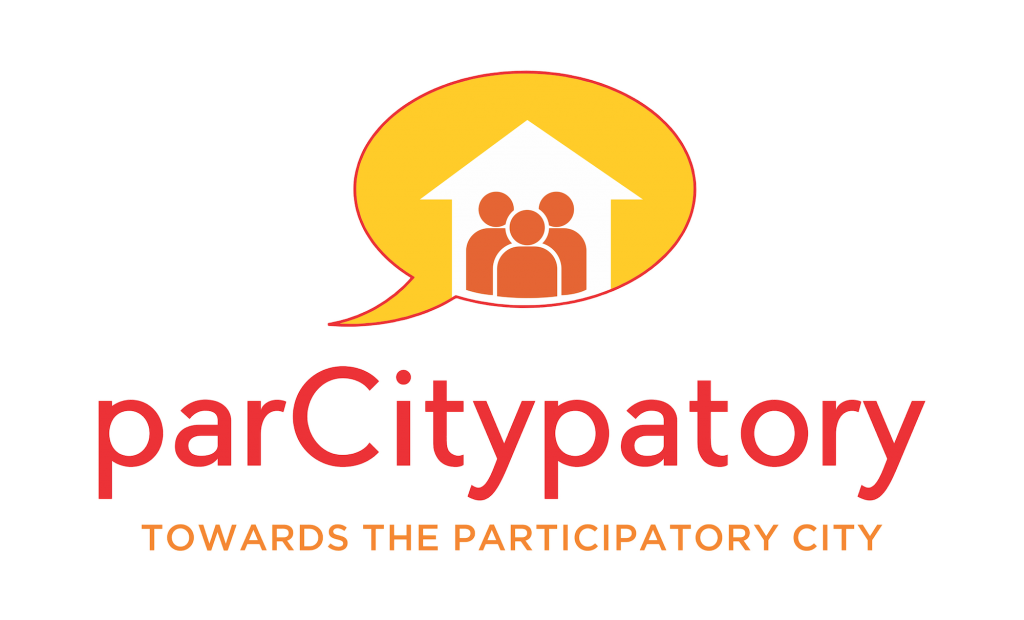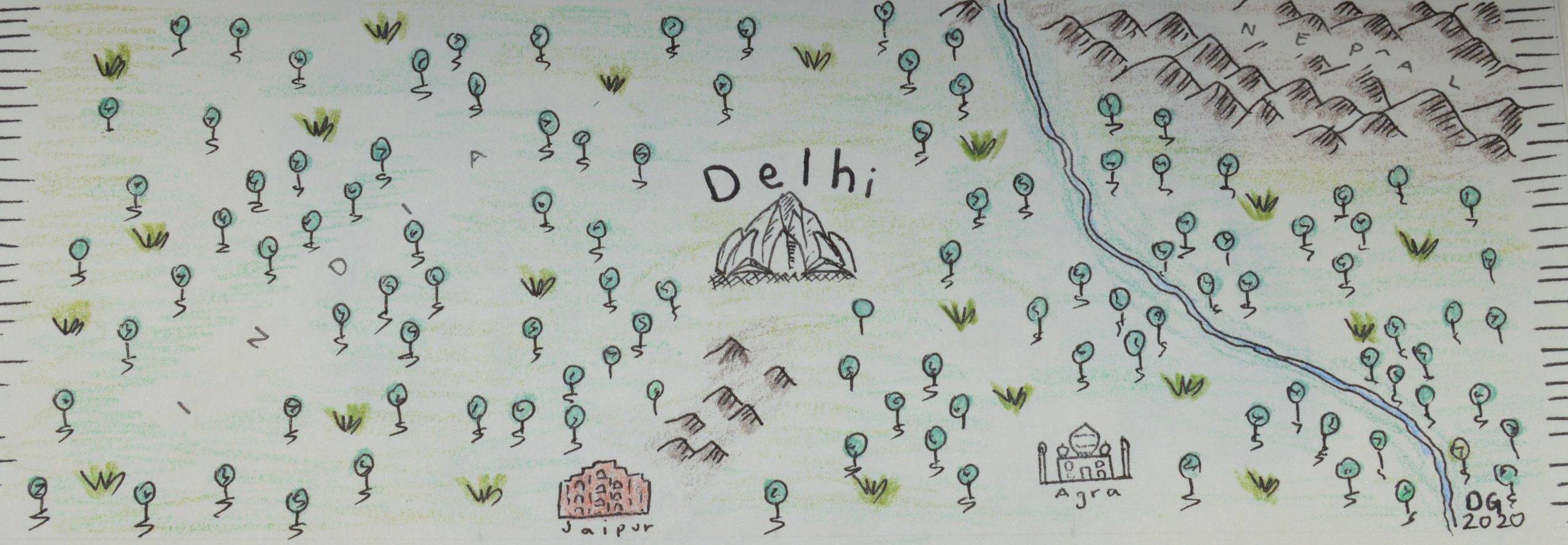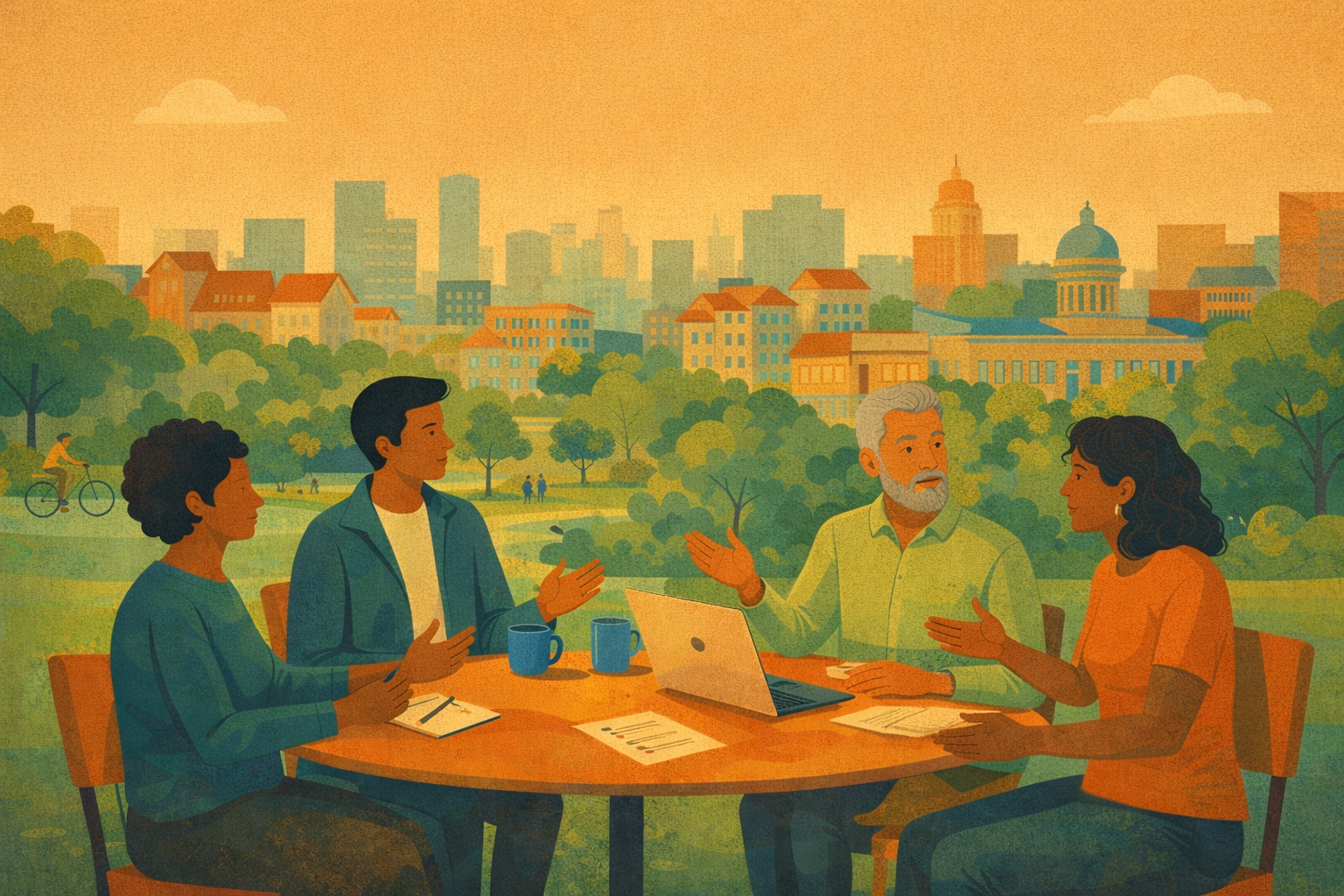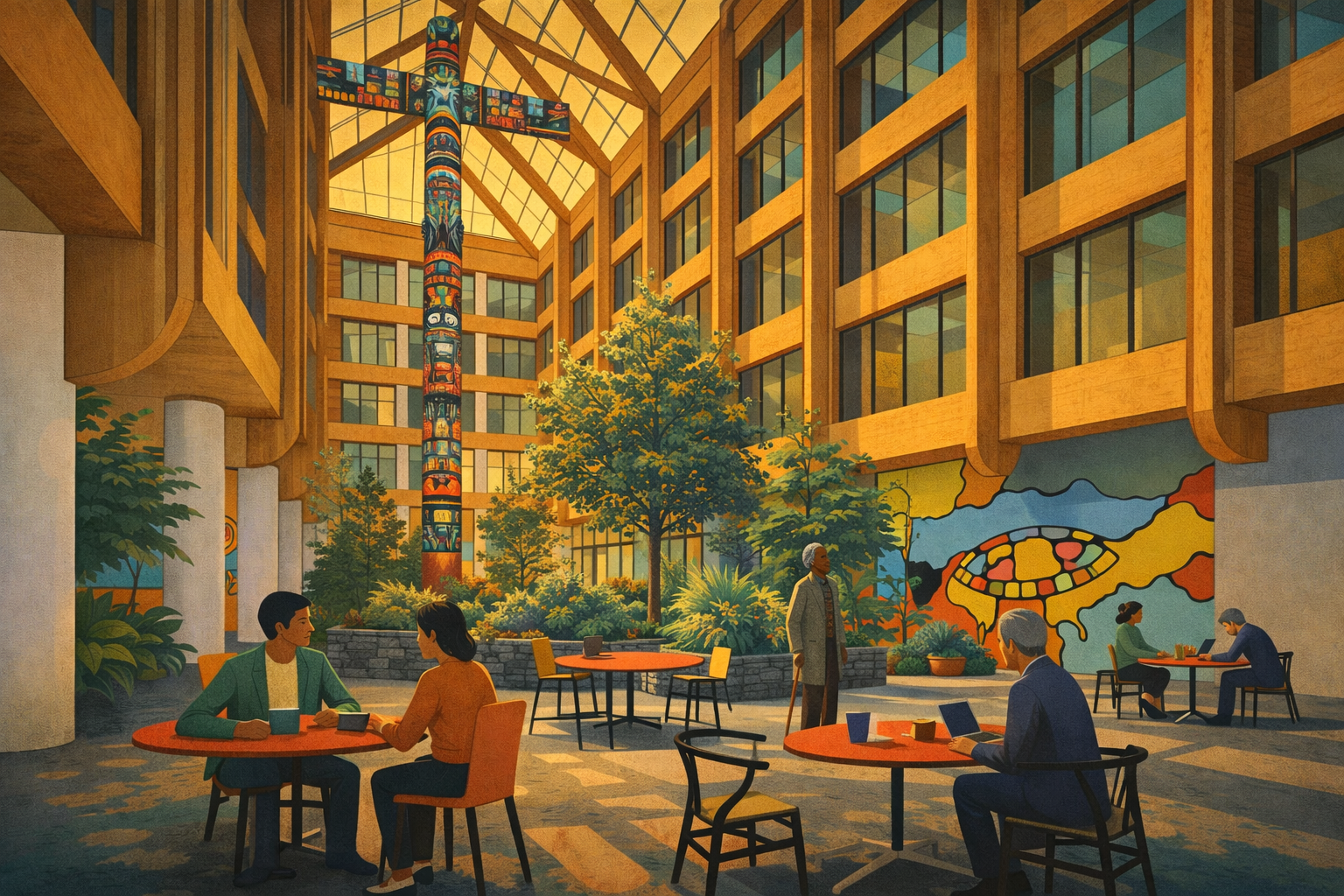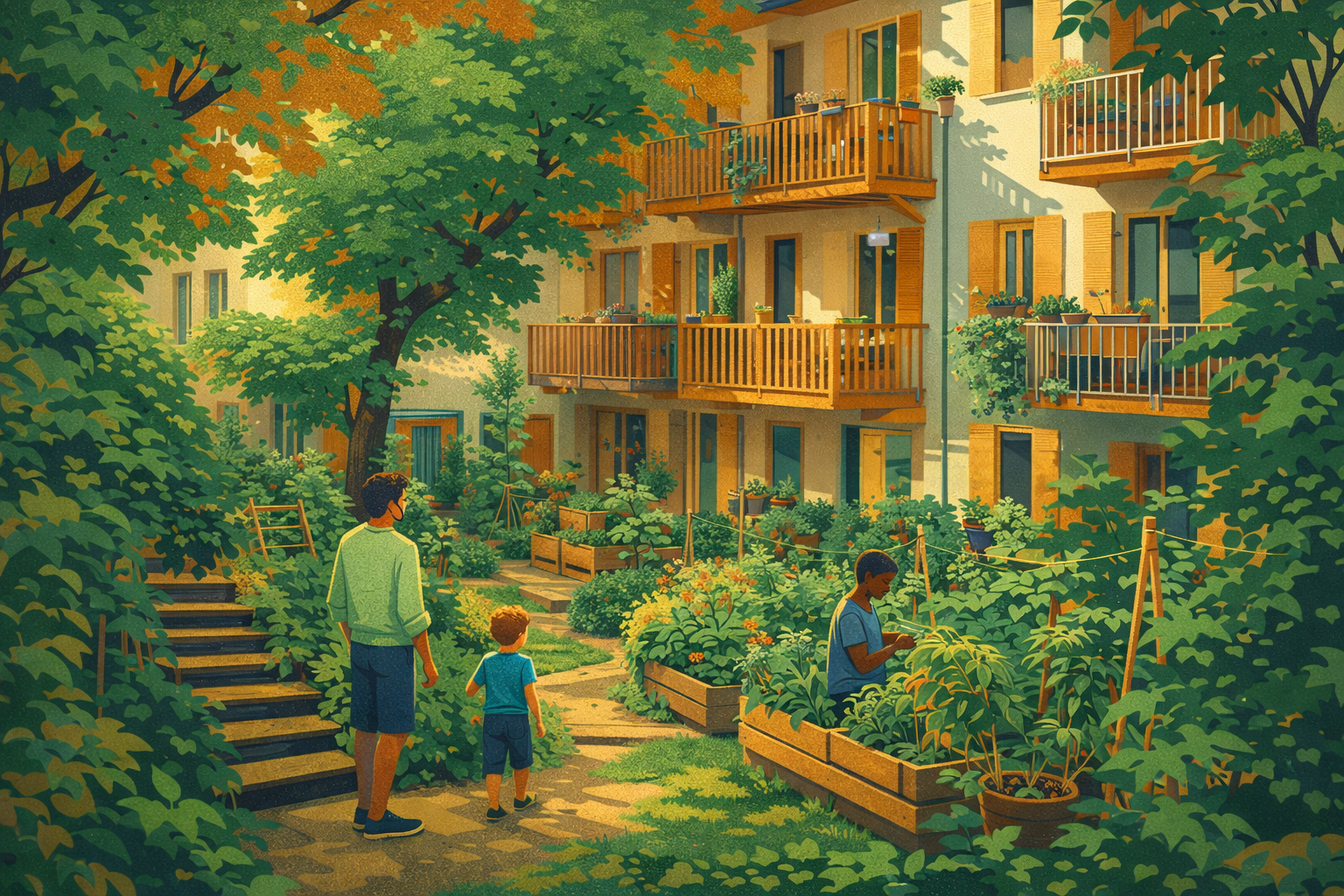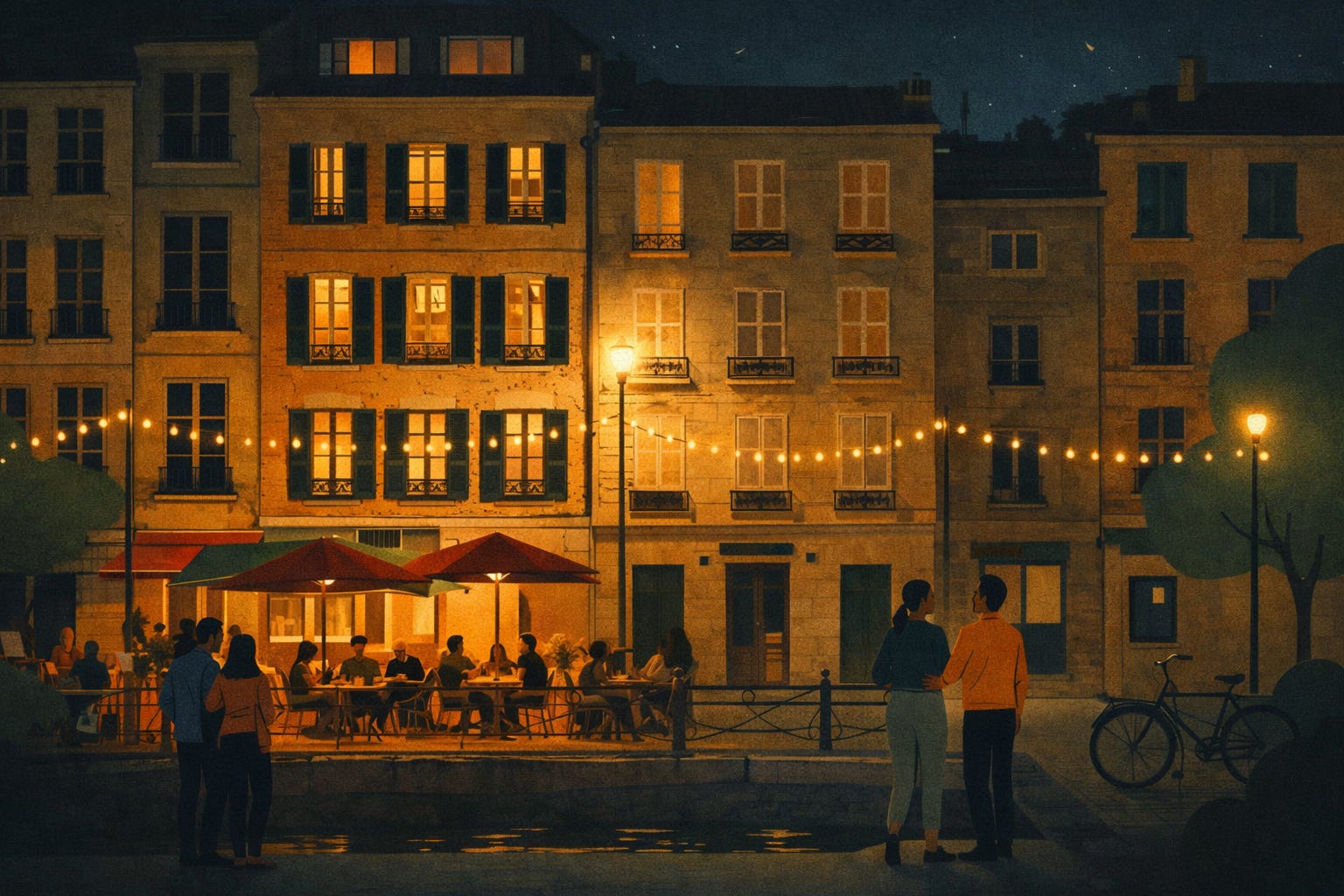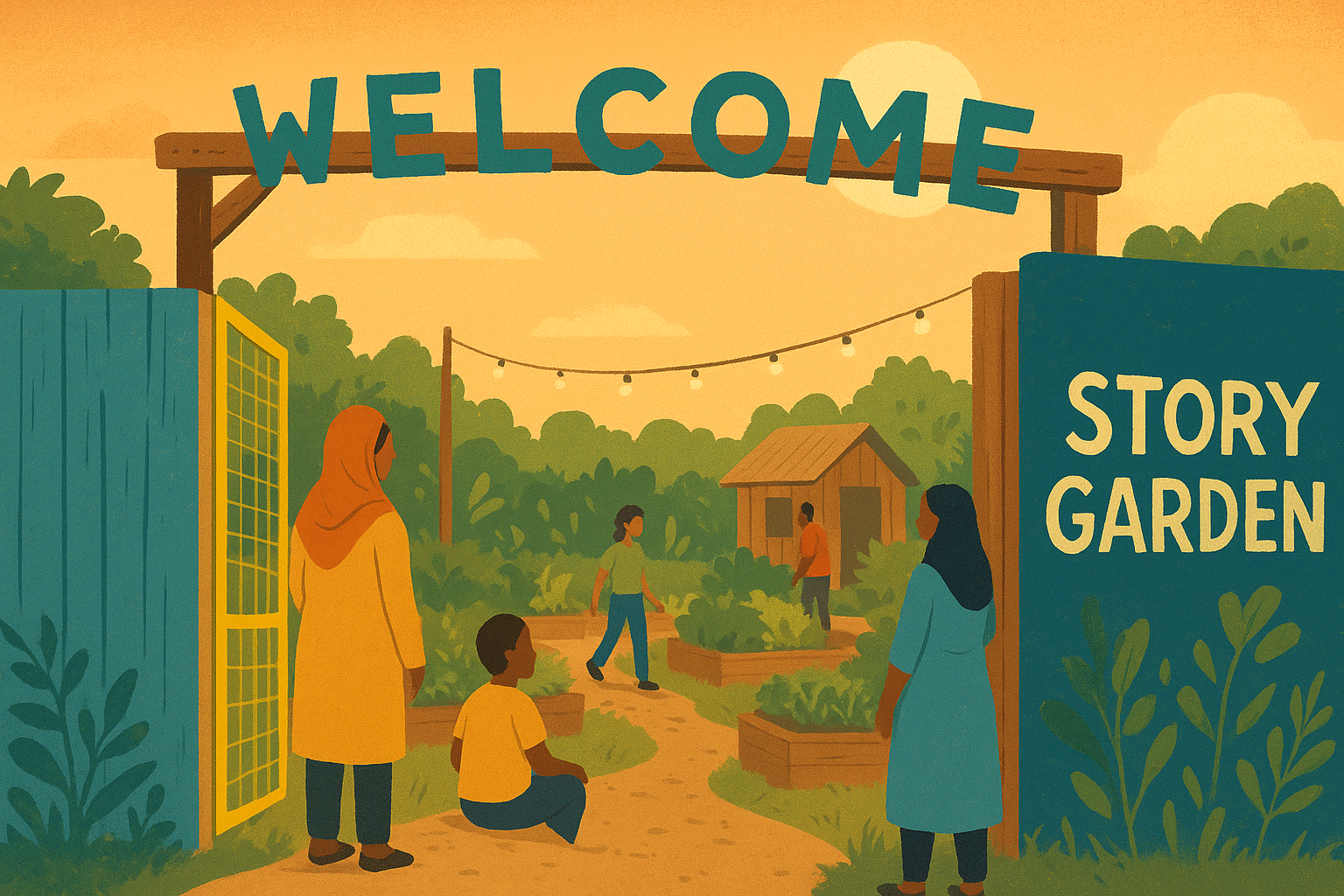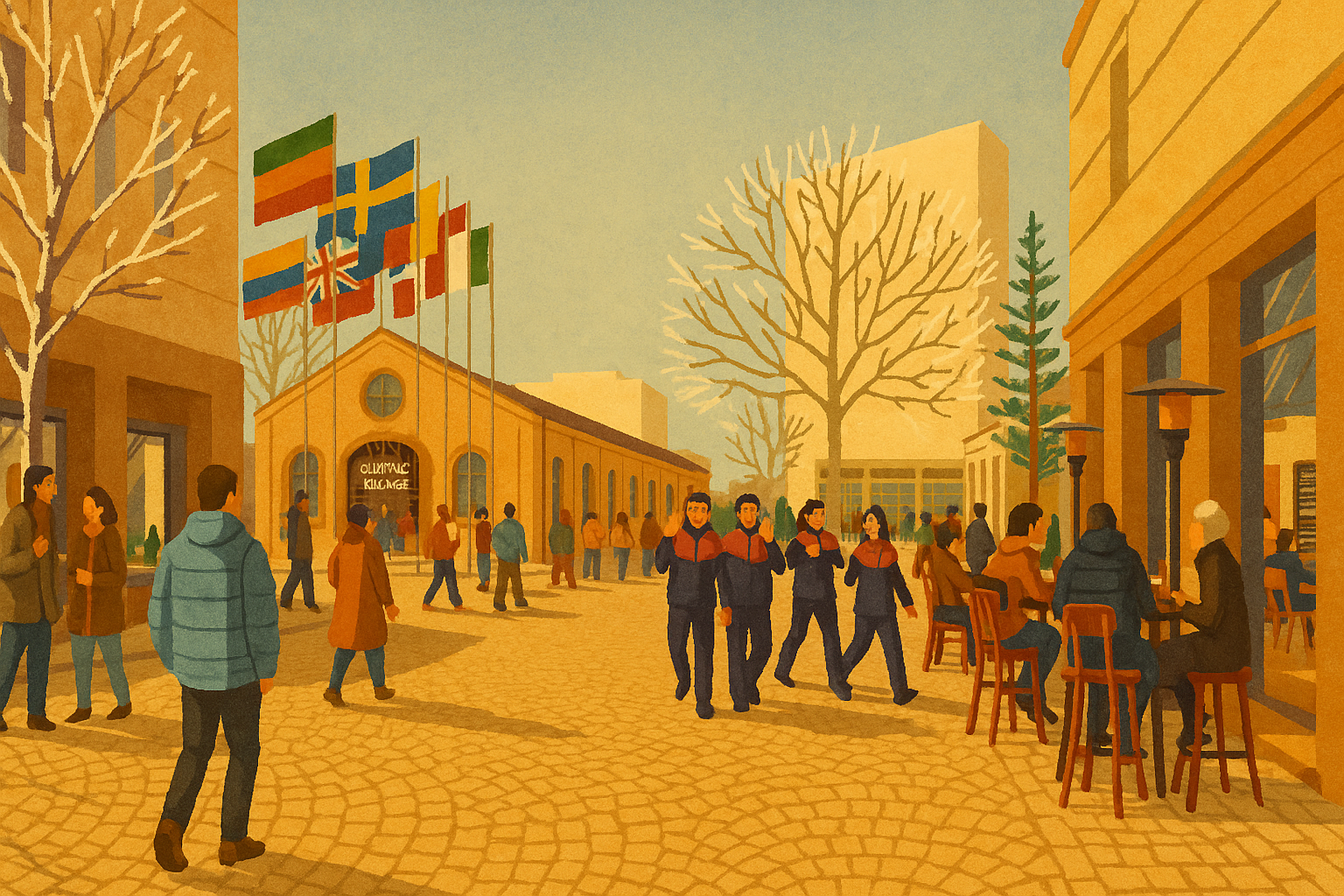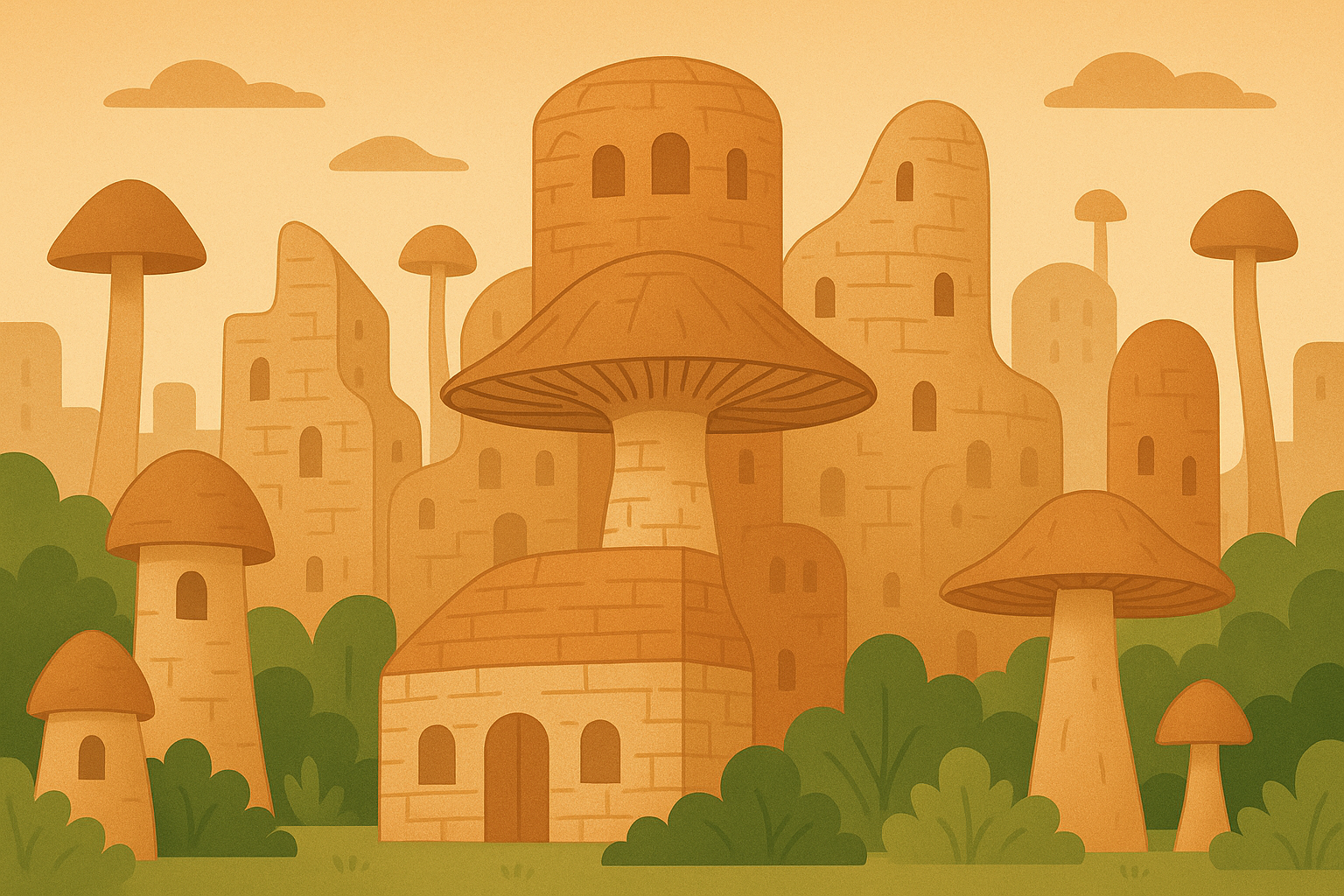Kathputli is a 40-year old colony in Delhi of about 2,800 families. The community consists of puppeteers (kathputli in Hindi) and other artists. Living conditions in Kathputli are far below Delhi’s living standards and most parts of the colony are classified as “slum area”.
I did some research to try and understand the developments in Kathputli, which I will sum up before handing over the word to Vijay Kumar from Kathputli, who kindly answered my interview questions in a very honest, patient and open way. Thank you, Vijay! Apart from Vijay’s account, I will quote from a very interesting blog by Shatakshi Gawade who also collected some voices from Kathputli in 2015.
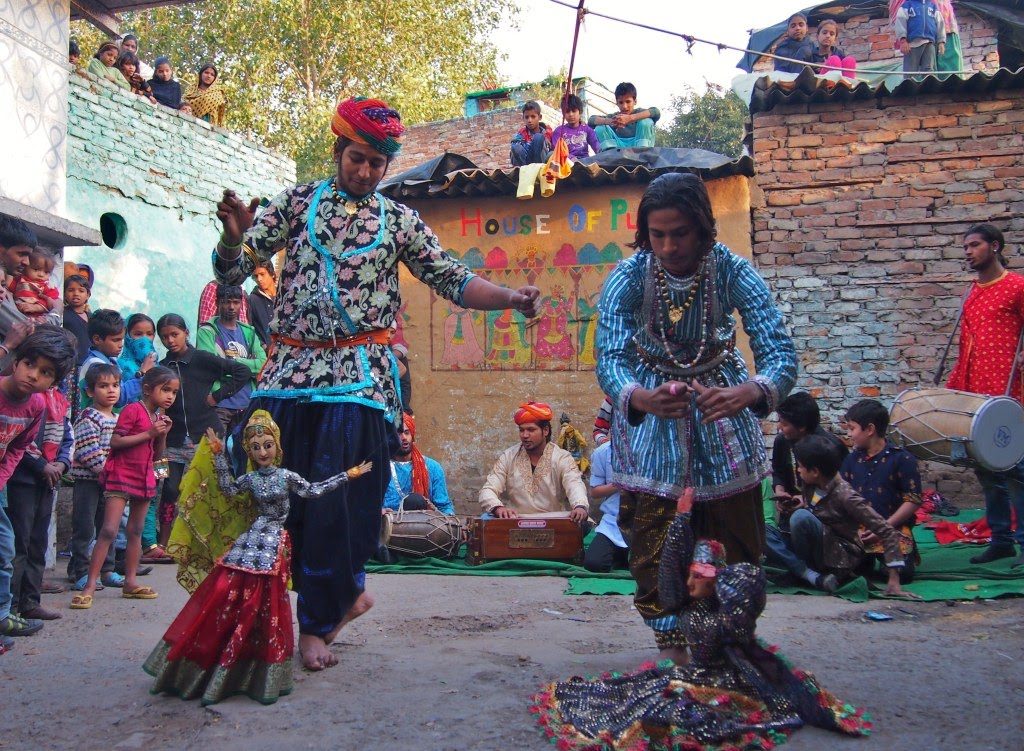
The Delhi Development Authority (DDA) has decided to upgrade Kathputli as part of the slum-free Delhi initiative in 2009. Kathputli was the first slum chosen for the so-called “in situ” redevelopment scheme, which has three parts:
Step 1: Residents who qualify for redevelopmen (the criteria for eligibility are very vague) will move from their current settlement to a transit camp 2 kilometres away from Kathputli.
Step 2: The private developer Raheja will remove the former slum buildings and begin the construction of high-rise apartments for Kathputli residents. Besides, the company will also receive a section of the land to construct luxury buildings for commercial gain.
Step 3: Within two to three years, the transit camp residents will move back into the settlement into their new 10-storey buildings, with new apartments for every family.
Goal: all families of Kathputli shall be provided with “the latest modern apartments with high-end amenities like attached Bath, Toilet & Kitchens, Tiled flooring, Advanced Fire Detection (…)” (DDA website).
However, this redevelopment project is currently stuck. About one sixth of the families have been transferred to transit camps and have been living there for 2 years, while most of the other inhabitants still live in their original houses in fear of eviction. Since this project has been developed top-down, many residents of Kathputli don’t know what to expect or where to get information. Although twelve community representatives have been invited to talks with the DDA, there was no participatory process. Research indicates that most community members remain largely ignorant about the proceedings of meetings and results of discussions between the representatives and DDA. NGOs and CSOs are also not included in the planning process. Apparently, community participation has been defined as “receipt of information” and nothing more. Since Delhi’s urban Master Plan requires no consensus and mentions “participation” without further defining it, the DDA has little incentive to involve the residents of the community in the project.
Most puppeteers fear for their community which could be ripped apart. They are in need of improved hygienic living conditions and legal tenure, but want to remain where they live now. Also, there are economic disparities within Kathputli colony, mostly stratified by origin of the inhabitants. This means that the project (at least the transit camp) will improve living conditions for some, but be a loss for others. Therefore, opinions of the residents are diverse. Fear and confusion prevail. There is no written guarantee that community members will be able to resettle in Kathputli after staying at the transit camp for some time. Members of the community also demand a guaranteed spot at the community camp before leaving their old houses. However, many residents of Kathputli don’t speak or read English and all the documents are in English only. Another worry is how the community will fit into the surrounding neighbourhoods at the transit camps, where neighbours will start to wonder about their own development prospects.
However, one positive note is that Delhi’s Government and its DDA have moved away from merely evicting people from slums. They are starting to acknowledge the need to consider and include the urban poor into the planning process. Another interesting development is that the urban poor in Delhi can make use of this relatively positive political climate by using tools at their disposal, such as the Right To Information, petitions or media for self-representation (see this video on eviction, English until minute 3).
Lastly, I would like to note that the case of Kathputli is relatively well researched (I recommend this source), as far as I can judge it, because of the attention its artistic residents receive worldwide. However, these leaves other communities underrepresented, even those that undergo very similar challenges.
Interview with Vijay from Kathputli
1) Please describe the community you are living in.
Kathputli Colony is an artistic community living here for the last 50 years. There are 12 sub-communities and most of them are artists. Residents come from all over India and bring their art, traditions and culture. We are world-renowned artists and we spread the colours of Indian culture all over the world. We are puppeteers, acrobats, magicians, drummers, painters and much more.
2) The government planned an upgrading of Kathputli – what is the current status?
The government planned a PPP project here but there are a lot of conflicts. They never ask our concern. They don’t include all eligible families in their final list of who is getting apartments. They are building 15-storey apartment, but they should think about how we are not office workers, we are artists, so our needs are quite different. We also want our development but according to our wishes.
The official agreements also creates many conflicts. Actually, we have been cheated badly in the last four years. One NGO fooled us by saying “you guys can get 4-storey buildings” and we believed them. But after two years they came up with 10-storey proposals and brought their own buildings, architects and a whole team. They basically wanted to own this project. They also took some community leaders in favour and tried to keep the project pending to make funds. The community has been divided into two teams. I am on the team continuously fighting for a better deal for the community.
3) You are representing the community to the government: What are your main concerns?
My main concerns are:
- All families should get a house
- The agreement should be very transparent and should make clear that we are getting a house exactly after two years in the transit camp
- Transparency in the whole project and in all steps like construction, flat distribution, living in the transit camp, participation
- We also need community halls, practice space, theatre, auditorium and shopping complexes
4) How can the community participate in talks with the government?
Earlier, the mentioned NGO was taking all decisions, making them for us. But now we are organising community meetings with all people and then decide what to talk about and how to finalise things.
5) What are the most pressing issues in Kathputli?
Due to this pending project, we are facing a very hard time.
Literacy is one of the most important issues. Due to a lack of education and knowledge, other people treat our community like fools. The leaders (representatives) are also not educated so they mostly take decisions given to them by externals.
The second most important issue is sanitation. Due to a lack of awareness and government ignorance, the colony is very dirty and all sewages and gutters are blocked. Since the government is not allowing any construction work like street covering, nothing is changing.
6) Are there any community-driven initiatives to solve everyday problems?
(Vijay and his friends started several initiatives for education, better sanitation, against child marriages and domestic violence together with community youths.)
The community’s political leaders lack interest in these initiatives, although we are totally dedicated to them.
I left my job and am now working full time for community issues and hoping for a better future.
(Vijay and his colleagues formed a panel to observe further actions and to represent the residents of Kathputli. Youths of the community are participating actively in the panel and working on community benefits and collaboration between relevant stakeholders. They are also collecting funds to fight the legal battle with the government. The panel asks everybody on behalf of the community “how is this beneficial for the community?”).
By now, our youth and most local leaders support our panel.
7) In your opinion, what is needed to improve living conditions in Kathputli?
Living conditions can only be improved by providing good houses with good basic facilities to all residents. Trust in the government and Raheja is missing.
Employment will also impact the living conditions positively.
Thank you, Vijay!
Ekatrabol
In her blog article on Kathputli colony, the journalist Shatakshi Gawade talks to a resident, who said:
“Shouldn’t the government ask what you want before making changes in your home? They can’t just come and construct something here. (…) The government should know better, considering the condition the slum dwellers of Mumbai are living in. They have struggled to survive in transit camps for the past 30 years. The builder brings in bulldozers, throws tear gas bombs at us. When the cranes come, the women stand before them, not allowing them to move forward. We have written letters to everyone, but there has been no response at all. Very few people have gone to the transit camp so far, the rest firm about staying and have dug in their heels. We will die but we won’t leave from here.”
For more pictures and the whole story, please visit: https://ekatrabol.wordpress.com/2015/03/11/the-magic-of-kathputli/ and https://ekatrabol.wordpress.com/2015/03/13/we-will-die-but-we-wont-leave-kathputli-colony/
Lastly, I would like to stress the importance of listening to the many creative ideas coming from Kathputli, like this one:
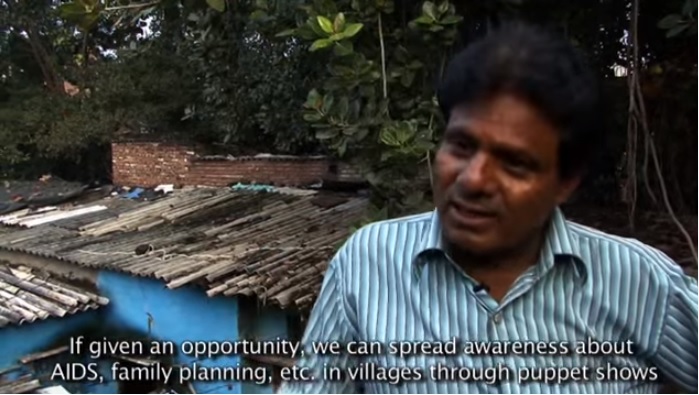
Please share your thoughts and ideas in the comment section below and don’t hesitate to contact me (laura@parcitypatory.org).
